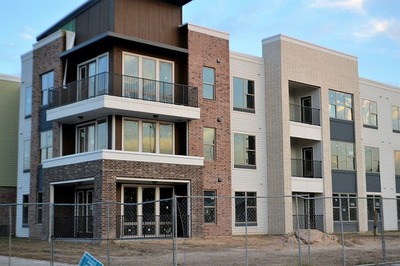Wisconsin Assembly Passes Housing Bills
Friday, June 16th, 2023 -- 9:01 AM

(By Anya van Wagtendonk, Wisconsin Public Radio) A slate of bipartisan bills aimed at addressing Wisconsin's housing needs passed out of the state Assembly on Wednesday.
According to Anya van Wagtendonk with Wisconsin Public Radio, the package is due for debate in the state Senate later Wednesday evening. If it passes there, the bills will head to Gov. Tony Evers' desk.
All together, the legislation will allow for low- and no-interest loans for some housing projects and make it easier for housing developments to be approved by local governments. Supporters say the bills will help build Wisconsin's workforce.
Every bill but one had both Republican and Democratic co-authors, and many also received support from real estate and construction industries, local government associations and public health groups.
Several bills create revolving loan funds, one for developing workforce and senior housing, one to turn vacant commercial buildings into new residential developments and another for Main Street housing rehabilitation, which incentivizes the development of housing above commercial spaces in community downtowns.
Another bill would provide low-interest loans for residents making improvements to older homes. The programs would be administered by the Wisconsin Housing and Economic Development Authority.
One bill would change the state's low-income housing tax credit program to allow more claims per year, and to use at least 35 percent of all tax credit value in rural areas. Those are defined as communities of fewer than 10,000 people located at least 10 miles from a larger community of at least 50,000 people.
And one bill makes it harder for community members to block new housing as long as a proposed development meets existing zoning requirements. Its supporters have referred to it as an "anti-NIMBY" bill, referring to the acronym "Not In My Backyard," which describes residents who push back against developments in their neighborhoods.
The bill would require local governments to approve a development that meets existing zoning rules, and would lay out a court process for developers who feel the rules have been changed on them mid-project. Unlike the other bills, which were co-sponsored by both Republicans and Democrats, that bill had solely Republican cosponsorship. Like the other bills, it passed out of the Assembly on a simple voice vote.
Feel free to contact us with questions and/or comments.




